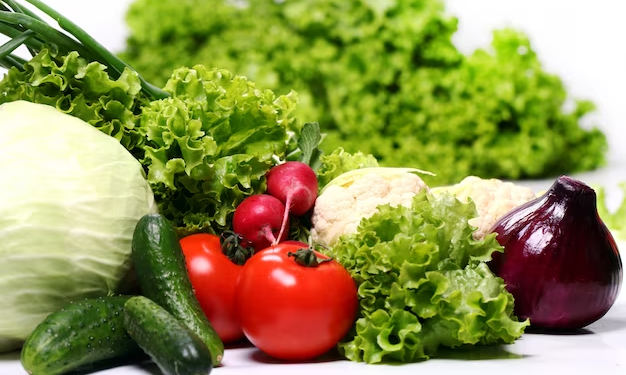Table of Contents
1. It helps fight flatulence.
Bloating is usually caused by digestive issues, hormonal imbalances, dietary issues, or most commonly, gut infections. Things get messy when a person experiences bloating, but a secret ingredient in these leafy greens can help prevent it. All leafy vegetables are rich in potassium, which helps maintain optimal fluid balance in the body. What Happens in Bloating A sodium-rich diet is often responsible for triggering the feeling of bloating, which occurs when potassium-rich leafy greens require about 4,700 mg per day. Eating a cup of steamed spinach can solve your bloating problems.
2. Makes Skin Glow
All leafy green vegetables contain a compound called beta-carotene, which gives them their red, green, or other similar colors. Underneath these color pigments, one can find the secret to glowing skin. It acts like a natural sunscreen and protects our skin from harmful UV rays. Bananas are said to be rich in beta-carotene, so the next time you eat some banana leaves, you can take care of your skin.
3. Relieves Stress
A big green glass of smoothie made with these leafy greens is sure to start your day on a great yet healthy note. Leafy green vegetables are an excellent source of folate, which is said to support the production of mood-regulating neurotransmitters or hormones known as dopamine or serotonin. In addition, the presence of magnesium in such vegetables can also support your vascular health.
4. Supports Optimal Brain Function
Memory and reasoning are two brain functions that you may want to improve. One can perfect their reasoning ability and boost their memory skills by eating leafy greens. The study claims that all people who ate the most leafy vegetables had a lower rate of cognitive decline than those who ate the least.
5. Supports Bone Health
All this, not only you, but we also thought that drinking milk was the only remedy to strengthen bones, but it is not so. Consuming green leafy vegetables can fundamentally support your bone health. These vegetables are also a fantastic way to get calcium. For example, broccoli and kale contain vitamin K, which is beneficial for bone health.
6. Improves Inflammatory Response
Again, nutrient-dense leafy greens come to the rescue to reduce inflammation in your body. It is an excellent source of treatment for chronic diseases as it contains antioxidants and polyphenols, which are disease-fighting compounds.
7. Assists Healthy Aging
The appearance of signs and symptoms of aging is truly depressing. You cannot avoid it completely, though you can control it by eating lots of green, leafy vegetables. Such vegetables are known to delay the aging process by shortening compounds called telomeres. Broccoli sprouts go a long way toward maintaining telomere length and blessing you with youthful skin.
8. Controls the Toxins
Green leafy vegetables seem to help flush out some of the body’s toxins Vegetable plants high in chlorophyll, like spirulina, chlorella, parsley, and alfalfa, are believed to bind heavy metals and toxins in the blood and eliminate them from the body. It even cleanses your liver and supports the body’s natural detoxification process.
9. Boosts Digestive Enzymes
Digestive enzymes are responsible for breaking down food particles and absorbing nutrients from food. In some gastrointestinal problems such as constipation, nutrient deficiencies, and reflux, these enzymes do not function properly. Therefore, it is necessary to eat green, leafy vegetables. Raw leafy green vegetables can be enough to do the trick.
10. Supports Immunity
Who doesn’t need a better immune system? Everyone does, so doctors advise us to eat leafy green vegetables that support our immune system. These act as an excellent, healthy response to oxidative damage. Some leafy green vegetables that support the immune system are moringa leaves, broccoli, arugula, and kale.
So now that you know the many health benefits of leafy greens, when are you thinking of adding them to your lunch, dinner, and breakfast?
Leafy green vegetables list

- Kale
- Microgreens
- Collard Greens
- Collard greens
- Spinach
- Cabbage
- Beet Greens
- Watercress
- Romaine Lettuce
What are the 7 superfoods?

Now, let’s begin with the top 7 superfoods that you ought to include in your weekly diet.
- Dark, leafy greens such as kale, turnip greens, and spinach.
- Sweet Potatoes.
- Cranberries.
- Eggs.
- Turmeric.
- Nuts.
- Dark Chocolate.
if you would like to read about 7 Winter Fruits That Are Rich In Health Benefits, Click here



